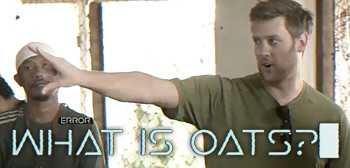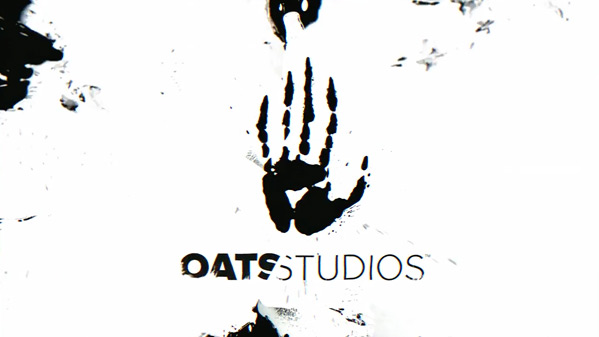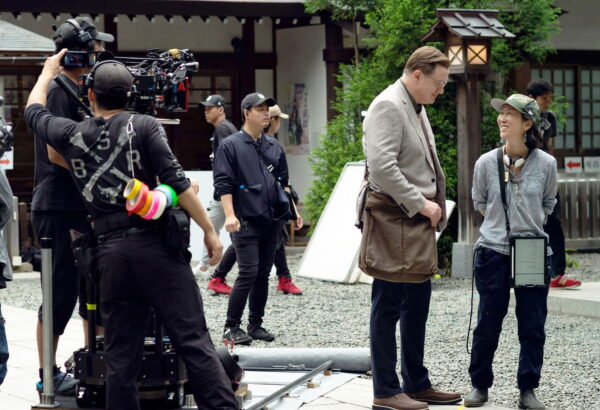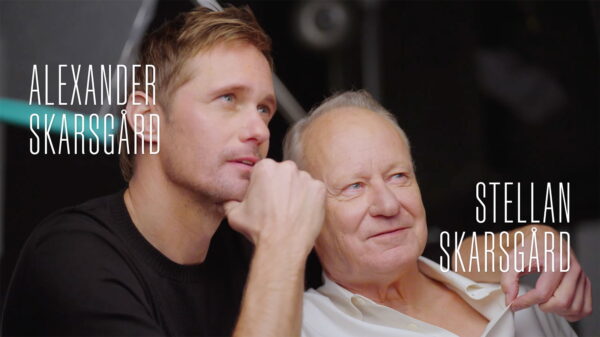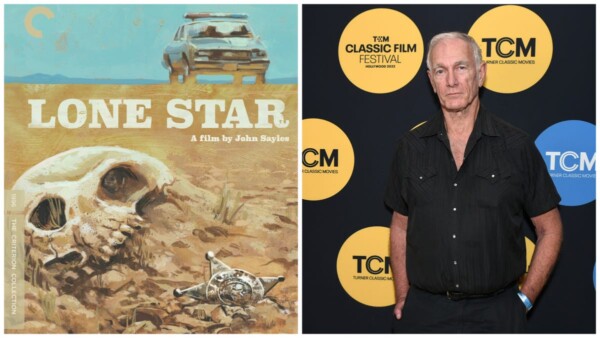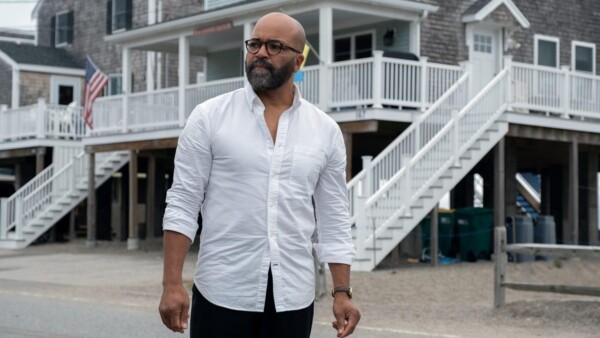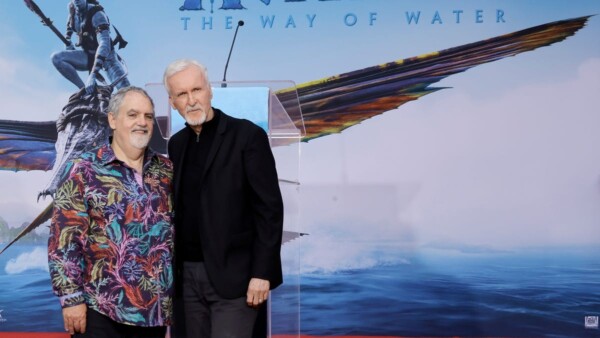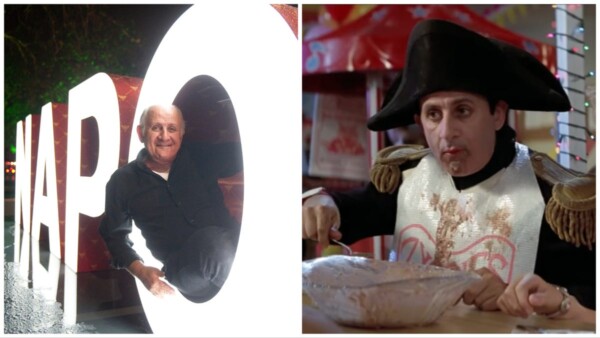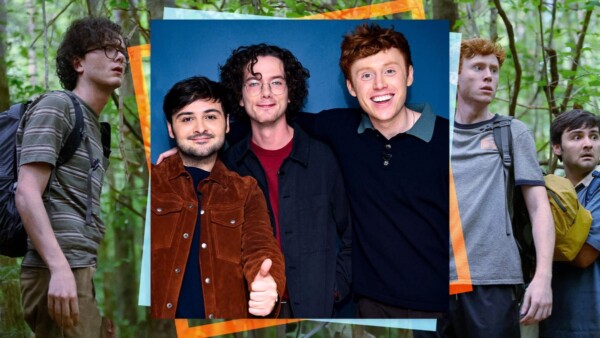Interview: Neill Blomkamp Reveals ‘Rakka’ + Truth Behind Oats Studios
by Alex Billington
June 14, 2017
It’s time to start experimenting with sci-fi again. South African filmmaker Neill Blomkamp is launching a new experimental filmmaking collective called Oats Studios. We’ve been posting previews over the last few months, but now it’s time to give fans a small taste of what’s to come. Blomkamp has launched the first project, titled Rakka, online in the form of a 20-minute short film that plays more like an extended proof-of-concept pitch reel. You can find it on Steam or watch the full thing below for free. So what exactly is Oats Studios? I talked with Neill on the phone for 30 minutes earlier this week to dive deep into the concept and figure out exactly what it is they’re trying to do. Oats is an «incubator of ideas that come from me or come from other people,» then they «put out those ideas to the audience, see how the audience feels about them.»
One could say that Oats Studios is a brand new version of Xerox PARC, but for sci-fi filmmaking instead of computer technology. It’s designed to be completely open source — they’ll listen to all the feedback, pitches, ideas, complaints, criticism, compliments and anything that anyone has to say — whether it be on Twitter or in emails. Neill admitted to me that he reads everything anyone says online (the exact quote: «I will read the shit out of everything»). They took over a warehouse in Vancouver that used to be a kitchen appliance store, and found a team of talented individuals to run the studio. Everything is under one roof — from wardrobe to production design to VFX to editing. Their goal is to produce four unique short projects for each «Volume», with Volume 1 close to completion already (and Rakka is included, along with Saigon being the next one).
«I’m trying to be creative in an unrestrained way.» Neill went on to explain that after making Chappie, he wanted to find a way to be totally creative without worrying about the massive costs, time (years), and constraints involved with making a full-length feature. So they came up with Oats Studios, and part of the challenge is figuring out how to make it financially sustainable. Viewers can give their money on Steam to projects they like, and in doing so may end up getting certain assets that you can’t get for free — including (possibly) PDFs of concept art, raw footage, 3D VFX models, and pieces of the score/music. They may even listen to feedback from the audience and take their ideas and integrate them in the future (potentially with revenue share). It’s fully experimental, creative, and open in a way we rarely see in the filmmaking world.
Here’s the video Neill put out giving a basic introduction to «What is Oats?» and the people who work there:
With every aspect of production/distribution under one roof, they’re able to keep costs low, but it still costs money to run an entire studio. This is why the success and future of Oats rests entirely on the audience, and their reaction, as well as their willingness to support the idea. Neill explains: «We need to figure out how to get enough capital back from the audience to stay around. Or we have to shut the doors. And we have to do that in a way where they don’t feel like I’m just charging them for totally, weird, experimental films that don’t fit into any normal category. They have to choose to do it. And if they choose to do it, it’s because they like it. So I’m kind of hoping that people like it. I can’t force people to like it. But if they feel like there’s value in the entire endeavor, then get behind us.» See the Oats Studios website for all the latest updates.
The first official project from Oats Studios they’re launching with is called Rakka. It’s set in the near future in Texas during a time where vile, lizard-like alien creatures have invaded Earth and enslaved humanity. Sigourney Weaver makes an appearance in a big role, though there are other human characters we follow including Nosh, Amir, and Sarah. The story is essentially about humans fighting back, attempting to resist and push back against these evil creatures. It’s dark, and totally gnarly, and totally nuts, the kind of project that Hollywood would never ever greenlight. But that’s what is cool about Oats. They can try this. They can make something totally crazy and see what audiences think. Maybe they won’t like it? Or maybe they will. Maybe they’ll have ideas about how to make it better? You can see it below and make up your mind about it.
Here’s the first film Rakka from Oats Studios — available to watch free now, or on Steam with more assets:
Neill also referenced the Deadpool early footage during our discussion. Back at Comic-Con 2014, Fox teased the Deadpool movie by debuting test footage in Hall H and seeing what fans thought. The reaction was so ecstatic that Fox realized maybe they should move forward with a movie, and then two years later we all got to see the actual Deadpool movie (which went on to make over $780 million worldwide). He does admit, however, that it’s hard to find good ideas. «Usually when you source the audience there’s a large amount of rejected work, but there will be stuff that does work.» He wants to find those gems, and he wants to see if there’s a cool idea that can actually be made into a feature film and become a success. It’s entirely up to you.
Below you can read the full transcript of our interview and discussion about Oats Studios. Neill says he’s still developing his own project, an adaptation of The Gone World for 20th Century Fox. But he’s also still overseeing Oats Studios and definitely has a say in what happens and what projects turn into something. And for those curious — Oats isn’t only sci-fi. Neill menitoned they’ve been working on Monty Python-esque comedy ideas, and they have a «totally screwed up puppet show» that they’re planning to release without voices and let the audience come up with the dialogue. They want to develop anything — maybe a «10 minute piece or a 15 minute piece or a 40 minute piece. But it doesn’t need to be bent to a 100 million dollar film.» Already have an idea? Pitch to them. Get in touch. Participate in the Oats experiment and speak your mind.
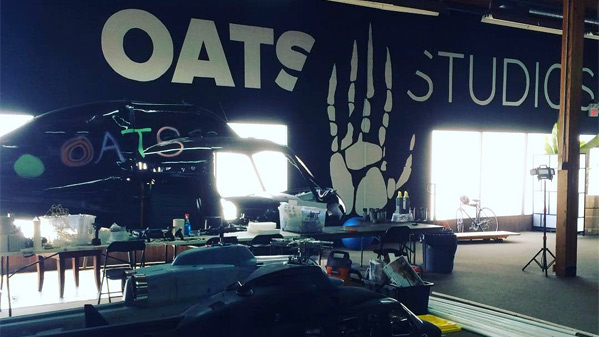
I have been a very big fan of Neill Blomkamp ever since District 9 blew me away in 2009. All of his films are totally original sci-fi concepts that he has come up with on his own, and I thoroughly enjoy exploring the worlds he creates and considering the ideas he plays with in his stories. Elysium and Chappie are also very unique films with some incredible VFX work in them, which is one of Blomkamp’s fortes. Not only does he come up with original concepts, but he makes everything feel real and integrates the VFX seamlessly with the practical sets and performances. I’m excited to see what he will come up with working at Oats Studios without any limitations on creativity, or the demands of Hollywood. Jumping right into our interview…
How exactly did this all start? Where did the original idea come from and how did you get the first pieces in place?
Neill: I really am obsessed with this idea of experimenting more before settling in on a two hour massive film that takes years to make. And I always come back to the thought that it’s like these smaller vignettes, or almost like an album. There’s different songs and different emotions. I wanted a venue that I could put out that kind of work as like a testing ground. So that idea has been in the back of my head for a decade. And when I was finishing Chappie, I felt like I needed to find a way to implement that. If I was to theoretically make these kind of pieces, how would I go about not just setting fire to a mound of money? Because that’s essentially what I’m doing. I’m basically just setting fire to cash. So is there a way to make it self-sustained?
When you look at the Rakka piece, it doesn’t really begin or end. It just sets up a world. It’s an exploration into a place. I want to go down the road of seeing where Sigourney’s character goes and where Amir goes or where Sarah goes. But I don’t know if the audience does. I need them to get behind me if they do. I felt like charging the audience outright was the wrong move. So then I thought like maybe the best thing to do is just put it all out for free mixed with a combination of an ability to pay for it on Steam if you want to. Then I started thinking about how much additional content you could get. And there’s actually a ton of interesting stuff. So that’s how I ended up here.
The long term goal of this whole, weird experiment, the point of it really is to be an incubator of ideas that come from me or come from other people that I like. And to really put out those ideas to the audience, see how the audience feels about them. And then what I want to do in a perfect world is I want the audience to pay us directly to make that film.
Kind of like Kickstarter on a much bigger scale?
Neill: Yeah, on a way bigger scale. Where you’re in a proper movie theater and you’re watching something that’s the scale of District 9, but fueled by the audience because they got behind it. And there’s a one-to-one relationship between us and the audience. That’s the long term goal. And I don’t know if that’ll work. But ultimately that’s where I want to go. For now it’s just incredibly creative and awesome. We took over this warehouse that used to be a kitchen appliance store. It’s covered in fake kitchens everywhere. And it’s a hotbed of creativity. Where everything is under one roof. From wardrobe to production design to VFX to editing. It’s all just in one place.
So are you working on 10 different things at one time?
Neill: Yeah. Exactly. So Volume 1 is done now until I’m faced with either seeing if the audience is going to get behind us enough to fuel us for Volume 2 or if I need to go and try to figure out how to raise capital.
This almost seems like you’re trying to «disrupt» Hollywood by being completely open with everything. Usually only the execs get to see the pitch, but now you’re showing everything to the public. Is that what you’re hoping for with Oats — to be that disruptive?
Neill: The word disruptive, it’s interesting because I’m not trying to necessarily go against the studios and be disruptive on purpose towards them. What I’m trying to do is to be creative in an unrestrained way. And it’s being able to do what I want to do. I’m going to give the audience the benefit of the doubt a lot of the time. And where the studio would stop something, I’m like, «I bet you some people would actually like this. Why don’t we just see?» And that concept gives rise to really interesting work down the line. Rakka is really dark and it’s really bleak. But it is mildly commercial. I could see a studio getting behind Rakka to some degree. Maybe they would try to tone it down a bit. But, the next piece we have coming up is called Saigon. And Saigon is way trippier. It’s like surrealist filmmaking. It’s sort of Apocalypse Now meets The Matrix in surreal film. So that I could not have gotten greenlit. I’m almost sure that I wouldn’t have been able to get any money to make that. And it may very well happen that the audience is like «we don’t dig this, man. This is too weird.» And that’s fine. But maybe they don’t. Maybe they’re like «we actually really like this and we wanna see more of this.» But even if they don’t like it, and I do five different things that are like Saigon, there’s going to be one in there where the audience is like, «dude, this is awesome! You have to make more of this.» And no one would ever have known that if I didn’t do it. See what I mean?
Yep, of course.
Neill: And that is what I’m going after. Because that’s where these weird hidden gems lie. And that’s what would normally get shut down. And that’s what I want to make.
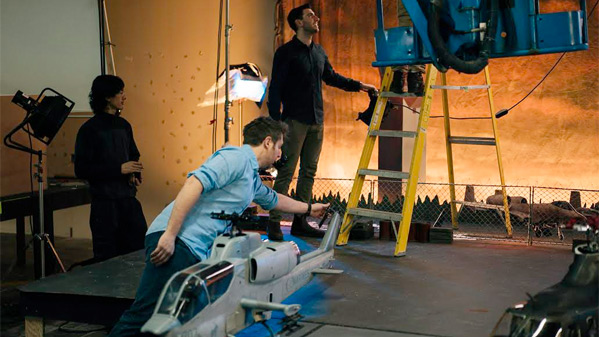
How will you measure the reactions to the different projects? Do you have a set system in place for determining whether the response is good enough to keep going? How are you planning to track what people say or if they like the work?
Neill: The metric behind it… One big part of the whole studio is that I’m sure that we’re going to learn and evolve and have to change and rewrite software to try to accommodate knowing that better. But off the top of my head, the stuff that we have been talking about is: on Steam, if someone really loved Rakka and they wanted to support us, they could buy everything on Steam instead of just watching it for free. So that would connect their investments to Rakka. And if we had 10 films on Steam, we would see that Rakka was the predominant winner in a financial sense. So that’s one way.
The second way is: I will read the shit out of everything, whether it’s on YouTube, whether it’s emails that are sent to us, whether it’s on Twitter, I’ll read everything. This isn’t normal, big, Hollywood filmmaking. I really want to know. So any way that somebody can send me a message I will probably read it. And we’ll just tally all that up. And then the other thing also is I have to weigh that against how I feel about stuff, too. Best case scenario obviously is that the audience lines up with something that I’m dying to make as well. And obviously for me to have gone this far down the road, setting fire to piles of cash, I’m probably going to be into it myself to begin with. But I may have my own clear winner in my head. So I have to line all of those things up at the end and then figure out what the next step is.
But I will totally listen to everything that comes in. And the other part that is interesting is if audiences send us stuff, if you get a thousand ideas that are napkin written notes on where Rakka could go as a story, one out of a thousand could have a very interesting idea behind it. It could be something where it’s like shit, that is actually really cool and we didn’t think of that. And I want to listen to that kind of stuff too, and figure out how to credit or revenue share some part of the film with that person if that were to happen. That’s a big part of it as well. And that’s across all spectrums: design, asset creation — they could give us 3D files, they could write a synopsis, they could write a paragraph; any data coming into the company where we can look at it and maybe most of it isn’t applicable, but there’s one gem in there that really takes us down an avenue.
So this is like full-on open source where any and everything can affect any next step?
Neill: Yeah, totally. And that can be from within or from without. An example from within is: one of the pieces that we filmed was shot in Bangkok. And I had a fight coordinator on that piece who was obviously a crew member coordinating fights and stunts. And the more I hung out with him, I was like «I’m gonna write an entire thing around this dude as a character.» And we can do that. So I can release a 10 minute piece with him the way that I see him in my head in this thing and see if the audience digs it. And there’s obviously the outside version of that coming in as well into the company, where maybe I’m not thinking of it.
You’ve talked about how much of this is all under one roof. Does that include the VFX and every last aspect?
Neill: Yeah. We have an awesome VFX supervisor, Chris Harvey, who is really talented, but also a lot of the VFX guys in here know him. Initially he was a really big help in getting some of the top tier, A+ level guys. That we sourced from around [Vancouver]. But once they got into the building, I think most of them really liked the environment and are beginning to see what the possibilities are. Because it really isn’t normal.
Are you, personally, now focused entirely on Oats Studio and these projects? Or are you also developing other films as well outside of this?
Neill: Normally under any other situation I would be 100% in Oats. The thing that has taken me out of that is there’s a book that I’ve been adapting for Fox called The Gone World for more than a year. And The Gone World, which is written by Thomas Sweterlitsch, I’ve done three drafts on and we’re doing a fourth now. That book and the script is so powerful and so moving to me that I really, really want to make that film with Fox. Because it is so, so cool. And I think that piece of creativity is something that is absolutely worth doing everything I can to continue to work with Fox to get made. So as long as the budget is within range and they like the script, I really want to see that film get made. Outside of that, though, I’m all in with Oats.
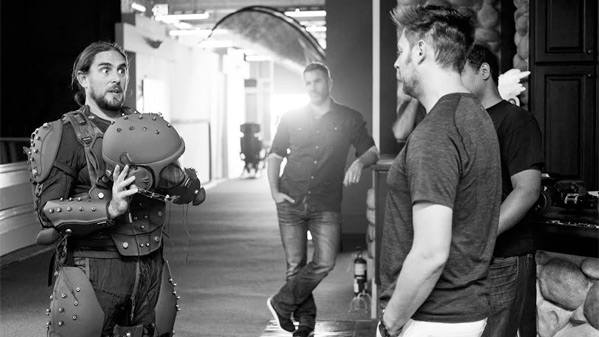
I ask because it seems like the feeling is that you are running Oats Studios and everything is your idea and it’s all coming from you. However, this doesn’t seem to be the case. But obviously you are still participating in the progress at Oats at least, right?
Neill: Yeah. The company would be extremely different if I wasn’t involved with it. What I want it to become is a place where eventually we can actually have other directors and we can have other ideas coming in here. The problem is everything is hinged on an extremely unconventional business model that stands a high chance of not working. So if we can just figure out the economics and make it work, then I know we can get it right. We can expand correctly… There’s a Swedish artist who does these amazing paintings of science fiction in Swedish environments — Simon Stålenhag [visit his website].
I tried to speak to Simon about optioning some of his artwork for ideas that could fuel some of the stuff that we want to do inside Oats. What I’m getting at is instead of only the black & white binary option that the world of Hollywood offers at the moment, which is a giant feature film or nothing. When you enter into a giant feature film you have this three act structure that is somewhat predictable. And it costs a shit ton of money. And a lot of the weird quirkiness and insanity of various pieces of very interesting artwork gets lost in that machine. So Simon has not made a deal with us yet. And maybe he’ll choose not to and maybe he’ll choose that he wants to. But the point is that we approached him because it feels like this can be a venue for realizing that kind of unique art in a way that is truer to what the art is. Maybe we only do a 10 minute piece or a 15 minute piece or a 40 minute piece. But it doesn’t need to be bent to 100 million dollar film.
So Oats can become a destination for a whole bunch of interesting stuff online that we can realize physically.
Yeah, that makes sense. It reminds me of the new models of places like Netflix or Amazon, where they can produce a series even though it isn’t a full big budget like a movie. Is that a possibility, for some of these projects?
Neill: Everything is a possibility for sure. But if you break it down into artists making artwork that the audience digests, my preference still is going to come back to the fact that we’re fueled directly by the audience. Because the rug can never be pulled out from under you. If that’s what you’re doing. You’re not going to find out that Rakka is going to be a theme park ride. You see what I mean?
You’re in control of it. Where it goes it’s totally in your control. I function better if I’m not getting surprised by things that are driven by fear or by economics. And so those options like Netflix are cool and very interesting and maybe that’s where we’ll be forced to have to figure something out eventually, but that isn’t the intention. Our intention is to be separate and autonomous and interactive with the audience. And a lot of that will die off if we go down traditional roads.
I just think about Rakka and how I want to see more about certain characters like Amir. And then you could develop individual episodes about his past or his future, or other stories.
Neill: Right. Internally we’ve always thought of Rakka more of like a show. We’ve always likened it to something where you would live with the characters kind of like «The Walking Dead». So if the audience feels that, that’s what I want to make. I want to go on a long term journey with those characters. There’s other ideas that we have that are explicitly features and the right way to make them is feature films. So we’ll make all different forms of content in here if we can figure out the economics behind it.
I’m just trying to clarify exactly what you are doing and what’s going on at Oats.
Neill: Dude, we also aren’t sure.
But that’s what is so exciting! I love the openness of it, and letting creativity flourish, and also listening to feedback from the audience. I’m excited to hear what people think of Rakka.
Neill: They could totally reject it. I mean, fuck, who knows? At least I made something that I love, though.
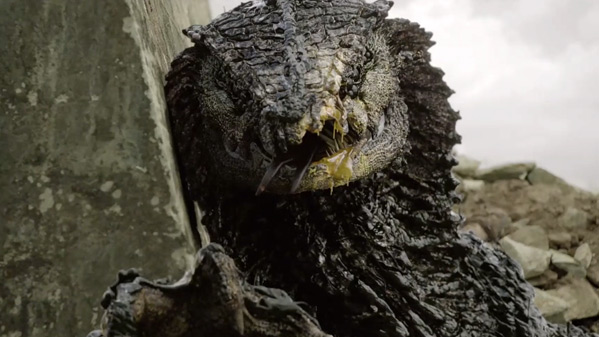
What are your thoughts on the current start of the science fiction genre? We have new Star Wars movies every year, there’s a lot going on. Do you think it’s at its best or does it still need to mature more?
Neill: The older I get the more I want to see films where I can understand what the filmmaker is trying to tell me. And that that film couldn’t have existed without that filmmaker. And I feel like I’m not getting that. I feel like a lot of the time the filmmaker could be switched out and I wouldn’t really know, because the risk riding on the sides of the project is so immense there’s nothing particularly unique coming out of it. Like unique bad, or unique good. I’m not getting that. So I would like to see more of that. And I suppose in a sense that’s what I’m trying to do with Oats. But you have to be separate from a giant fear based system in order to be able to do that. So I don’t know.
It’s a really interesting question, because the stuff that’s coming out is technically so superb. In the ’70s and the ’80s, the issue for filmmakers was that they had to struggle to think about how to realize the vision they had technically. And James Cameron was figuring out how to do that with computer graphics and Stan Winston was figuring out how to do that with animatronics. But it was like, we don’t technically know how to do this. We have to actually hit the brakes on this for a couple of years until we know how to do it. And I think now in the 21st Century we can realize anything that we can think of. And the limitations are no longer technical. The limitations now are actually are political.
Chris[topher] Nolan is a good example of, he wants to make Interstellar and he can just make Interstellar because the films that he’s made previously have made so much money. And I think Nolan actually, with your question, he elevates that. That’s a filmmaker who’s doing stuff that’s a very, very cool example of a large-scale budget that’s pushing the envelope. I imagine, either the fights that people have had with the way that the film is being made, or have gone into it willingly with no confrontation. And in both scenarios I keep seeing something that I feel like has no stamp of the individual on it. And their thoughts about the world. I want to learn something new about the world or see it through that filmmaker’s eyes. And that doesn’t happen to me often.
My follow-up question is: have you seen other sci-fi movies? Do you watch many of them?
Neill: Oh I see all of them. I see all the other sci-fi films, for sure. What have you seen that you really like?
I’m a really big fan of Denis Villeneuve and Arrival from last year.
Neill: So am I. I really, really like Denis Villeneuve a lot. And yeah, I felt like that was really interesting. The author of that short story [Ted Chiang], called Stories of Your Life, I love his work. His stuff is amazing.
I’m also really fond of Alex Garland and watching him jump from writing to directing. It seems to give him the chance to fully realize what he’s coming up with in his mind.
Neill: Yeah, I’m a big fan of Alex Garland as well. I really loved Dredd, like a lot. Like, I seriously love Dredd. But yeah, he’s great. He’s cool.
I keep wondering with so much sci-fi these days, is it all because of Star Wars or what? But I also like seeing new ideas. That’s what I like about Rakka — it’s so out there, and so dark and so gnarly, but cool. And I wanted more. Hopefully Oats allows you to actually bring to life more of these unique ideas.
Neill: Yeah, it allows me to skip between whatever I feel like doing. Whether it’s some kind of weird Monty Python comedy or totally serious filmmaking. And the thing that I notice about myself now is I’m very aware of the fact that I want to make dead serious, non-satirical, non-winking at the audience kinds of pieces. And Rakka is exactly that. Rakka is no bullshit. It’s not nudging or winking at the audience and getting them to buy into it. It’s just dead-straight filmmaking. And all the features I’ve done have never been dead straight before. None of them are. And I feel like that’s right now the place that I like to play in, this realm of absolute serious filmmaking. Even though it’s obviously genre, I’m portraying it without any sense of irony or any sense of satire.
Is there a message or an idea you want audiences to start with going in to see Oats Studios projects? Is there something you want them to bring in?
Neill: To go in open minded and know that it’s not traditional in the sense that you’re not going to get a normal amount of time where you get to learn about characters like you would in a 60 minute HBO kind of setting. And definitely not a two hour setting like in a film. So to go into it being like: «Okay, this is Neill showing us a snapshot into this world. Now let’s see the next one. Okay, that’s now a snapshot of that world. And now a snapshot of this world.» These blinds are pulled back on potential worlds that can be explored. And if you go into it with that kind of mentality and you’re think «okay, yeah, I kind of dig this. I want to see more of this.» And that’s how you feel, then help fund us to make more of them. They’re either going to like it or they’re not. And everything that we’re doing just hinges on whether they like anything that we’re doing.
A big thank you to Neill Blomkamp for his time, and to Oats Studios for arranging this chat.
For more info on Oats Studios, visit their official website. Or head to Steam for more details on the assets available. You can also follow Neill on Twitter @NeillBlomkamp or Oats on Twitter @oatsstudios. Have fun.
Find more posts: Feat, Interview, Sci-Fi
1
Justin R on Jun 14, 2017
2
DAVIDPD on Jun 14, 2017
3
Jon Odishaw on Jun 14, 2017
4
Efterklang on Jun 15, 2017
8
David Diaz on Jun 29, 2017
New comments are no longer allowed on this post.
Текст выше является машинным переводом. Источник: https://www.firstshowing.net/2017/interview-neill-blomkamp-reveals-the-true-concept-of-oats-studios/



